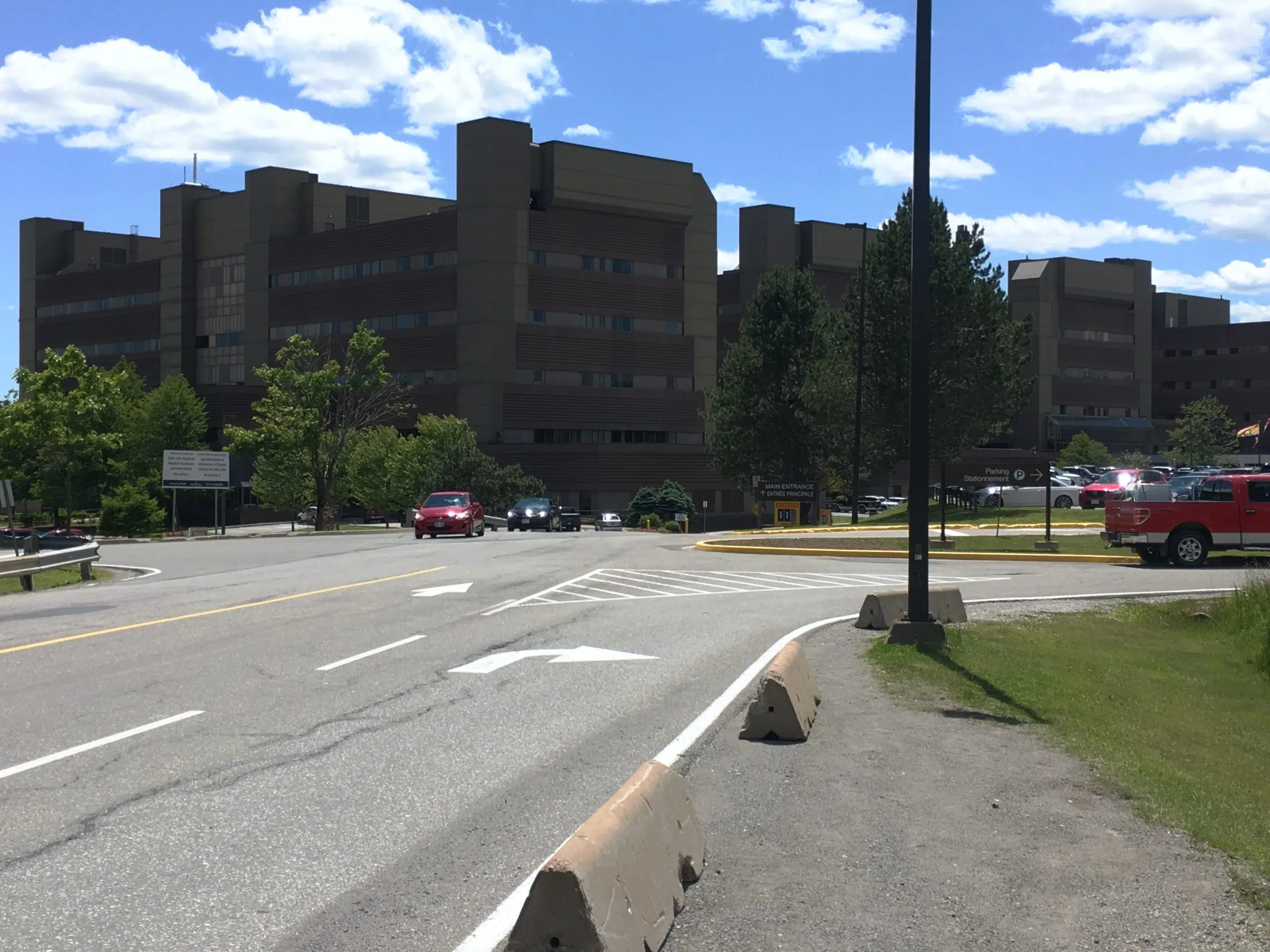
The Saint John Regional Hospital can be seen in this file photo. (Brad Perry/Wave News)
Public Health officials have confirmed a case of measles in the Saint John area.
New Brunswick’s chief medical officer of health made the announcement on Friday.
Dr. Jennifer Russell said the person was exposed to the highly contagious disease while travelling internationally.
Russell said people who visited the Saint John Regional Hospital’s emergency room or X-ray/CT department on the following dates may have been exposed:
- April 18, 6 p.m. to 3 a.m. (and X-ray/CT)
- April 19, 8:30 a.m. to 2 p.m. (and X-ray/CT)
- April 21, 10 a.m. to 4:30 p.m.
- April 22, 9:30 a.m. to 2 p.m.
- April 22, 6:30 p.m. to 12:30 a.m.
“Early symptoms of measles to look for would be fever, cough, tiny white spots in the mouth,” Russell said.
“Within three to seven days, a red blotchy rash can appear — first on the face and then spreading to the body and arms and legs.”
Check Immunization Records
Russell said Public Heath has already contacted the individual’s close contacts, including family members and co-workers, to make them aware.
She said anyone who was potentially exposed should check their immunization records.
Russell said anyone who was potentially exposed should check their immunization records.
The Department of Health says most people are protected with two doses of the measles, mumps, rubella and varicella (MMRV) vaccine, which is given to babies at aged 12 and 18 months.
But Russell said not all adults have received the second dose of the vaccine.
Adults born in 1970 or later can receive free measles vaccine if they have not already had two doses. Those born before 1970 are considered immune to the disease.
Confirmed case of the measles in Saint Johnhttps://t.co/cwrJP07Mn3
— N.B. Dept. of Health (@NBHealth) April 26, 2019
Anyone who feels they have symptoms consistent with measles should take precautions, Russell said.
“They should isolate themselves by staying at home and avoiding all contact with unimmunized people,” she said.
“They should call their health-care provider or 811 before visiting a clinic or hospital to ensure that precautions are in place to protect other patients.”
Russell said measles can lead to serious complications, especially in adults and infants. The virus is transmitted through the air or by direct contact with an infected person.




